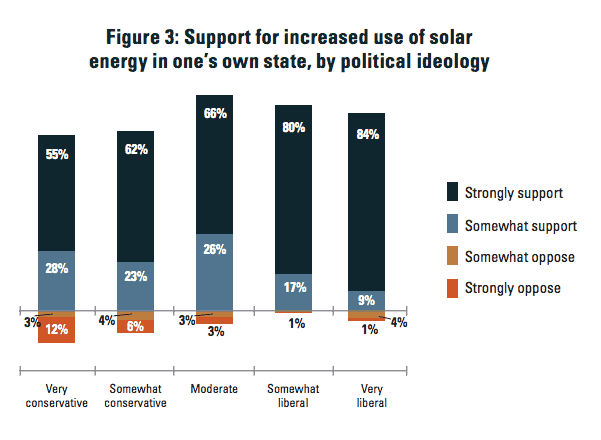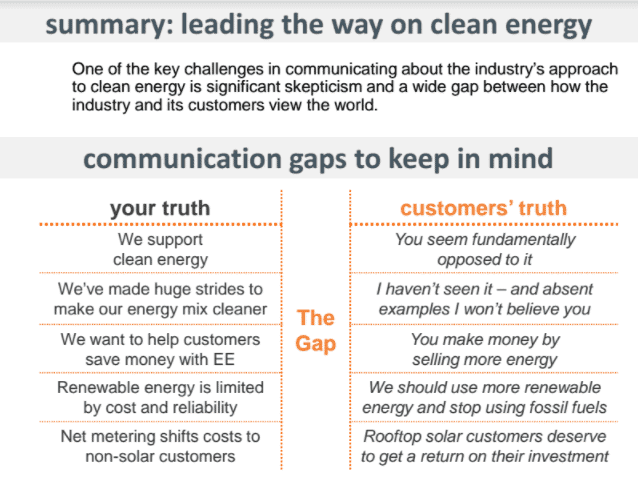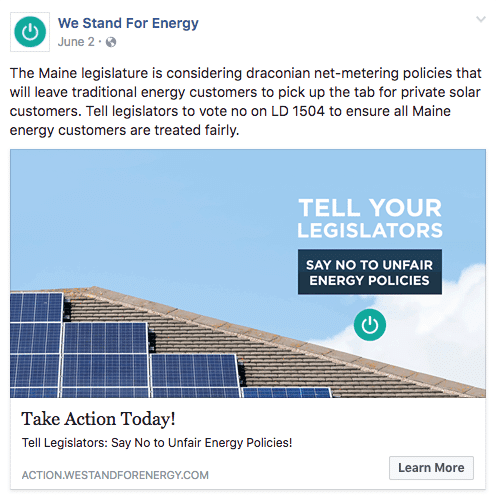A new poll has again found majority support for net metering and increasing solar power among Americans from across the political spectrum, despite years of attacks from the utility industry.
Researchers at the University of Michigan and Muhlenberg College conducted a national survey during the spring of 2017 and found:
A majority of Americans (76%) support net energy metering (NEM), a policy that allows small-scale producers of renewable energy (e.g., through rooftop solar panels) to sell excess power back to their electric utility.
Even among those who identified as “very conservative,” 62 percent said they support net metering and only 21 percent were opposed. The poll also found support for increasing solar power among Americans of all political stripes, including 83 percent support among the “very conservative.” Support for both net metering and increasing solar was even stronger among moderates and liberals.

The new poll found support for increasing solar power across the political spectrum.
Despite this widespread public support, electric utilities have attacked net metering policies in a number of states as part of a campaign to limit the competition they face from rooftop solar. The University of Michigan and Muhlenberg College researchers allude to this in their report on the new poll:
NEM policies, though, have been the subject of much debate. While renewable energy advocates have sought to expand net metering as a way to help achieve climate goals, many utility companies have argued that NEM policies subsidize solar customers at the expense of all others…
Another poll from shortly after the 2016 election found that, “A plurality of voters across party lines believe that net metering is fair.” Utilities have invested in a major public relations campaign to fool the public into supporting the industry’s position on rooftop solar and net metering, but the polls show most Americans aren’t falling for it.

A communications playbook developed by the Edison Electric Institute, the trade group for investor owned utilities, acknowledged the gap between the views of utilities and their customers on net metering.
Still, the University of Michigan and Muhlenberg College report points out that the political debate over rooftop solar has continued despite numerous studies that confirm net metering generates net benefits:
… To arbitrate these differences, public utilities commissions have often turned to solar valuation studies, which aim to put a price tag on both the costs and benefits of distributed generation. Despite most such studies finding NEM provides the grid with more benefits than costs, it hasn’t stopped legislative debate. In the last two years, policy-makers in all but two states (Alaska and Wyoming) have discussed net metering, or related policies.
Money all too often talks louder than public opinion in politics, and powerful electric utilities have used their wealth to buy influence over state energy policies. In Maine this year, Central Maine Power defeated a pro-solar net metering bill that was backed by a bipartisan majority of state legislators by securing a veto from Republican Governor Paul LePage and the votes of just enough conservative members of the Maine House of Republicans. It’s lobbyists used a combination of front groups and political contributions to prevail in the face of popular support for rooftop solar and net metering.

We Stand for Energy, a utility industry front group, attacked Maine’s pro-rooftop solar bill on Facebook
Meanwhile, utilities like AEP Ohio, Gulf Power, and NV Energy have all proposed increases in the monthly fixed charges paid by their customers in 2017. Higher fixed charges can unfairly burden low-income utility customers, according to the Consumers Union, National Association of State Utility Consumer Advocates, and National Consumer Law Center. These charges also make it harder for utility customers to save money on electricity by investing in energy efficiency or going solar.
Electric utilities will undoubtedly continue to pressure state policymakers to rollback net metering and stifle the competition they face from rooftop solar, even as they demand higher fixed charges that hurt their customers and benefit their shareholders. The polls show utilities aren’t fooling the public, and policymakers should take note.

[…] national survey conducted in 2017 by researchers at the University of Michigan and Muhlenberg College found that […]
[…] national survey conducted in 2017 by researchers at the University of Michigan and Muhlenberg College found that […]